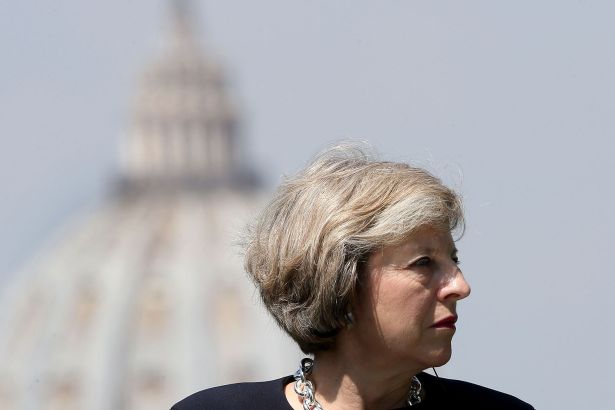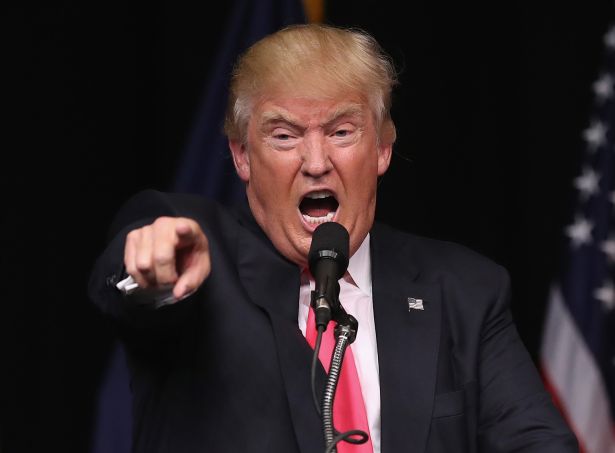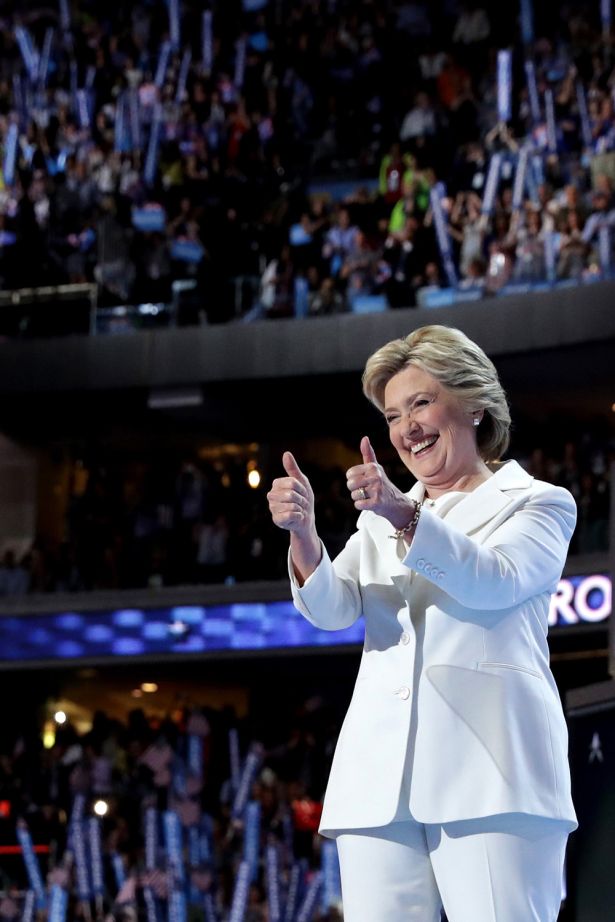The Big Chill: From Brexit to the U.S. Election, Uncertainty is Freezing Market Activity
By Cathy Cunningham August 3, 2016 9:00 am
reprints
It has been a little over a month since the U.K voted to leave the European Union. The unanticipated outcome of the Brexit vote led to what can only be described as an absolute inability to “keep calm and carry on.”
Stocks plummeted, investors panicked, and some U.K. citizens who voted to “Leave” lamented their actions, weighed heavily by “Bregrets.”
And the ramifications of the vote haven’t become much clearer since the outcome was revealed on June 24. A new prime minister and Conservative Party Cabinet have stepped in, but Article 50 of the Treaty on European Union has yet to be invoked, leaving the U.K. in abeyance—technically still part of the EU while having resolutely signaled its plan to leave it behind. The reception from Europe has understandably been as warm as that of a divorced husband being forced to share a New York-sized apartment with his unfaithful, soon-to-be ex-wife.
Across the pond, in America, there is another vote looming on the horizon with a big wild card that is giving spectators pause. We’re talking about Donald Trump.
While new presidential administrations always mean new changes, given what Trump has said about rescinding trade pacts (as well as some of America’s traditional alliances), the GOP candidate has added an extra layer of ice to investors plotting their next move. (Disclosure: Jared Kushner, the publisher of Commercial Observer, is Trump’s son-in-law.)
Both of these events—one a fait accompli, the other still undecided—have made 2016 the year when a lot of big decisions go straight to voicemail.
While Theresa May has been busy juggling her cabinet, the U.K. as a whole is largely frozen as it seeks some clarity on the socioeconomic impacts of its next step toward the EU door, not to mention the vague timing of its formal Cheerio. May has stated that she will not invoke Article 50 until at least 2017 and not until she knows Scotland’s position in the negotiations.
May is now leading a starkly divided country. Scotland, which voted overwhelmingly to “remain” as part of the EU, is now considering a second independence referendum of its own in order to leave the U.K. The separatist movement appears to be gaining steam with the latest pro-independence rally—held in Glasgow on July 30—attracting several thousands of supporters.
“It feels like the U.K. is in some kind of tense limbo, not sure what new horror is going to be next,” said Namuli Katumba, a London-based financial services professional. “No one seems to have any clear plan, and it is in no way clear that the unelected people at the top have the means to build one.”
A trader for an investment bank, with whom CO spoke the day after the vote, shared Katumba’s sentiment with “limbo” being the word du jour. “I think we [in the U.K.] are just holding our breath and waiting to see what the new prime minister is going to do,” she said. “Many of us who were so angry at the result have reached the point of grim acceptance, I’m afraid, as there is nothing we can do to stop this fiasco. Apparently May isn’t planning on invoking Article 50 until 2016 is over, so we’re all in limbo until next year. I so hope that the November election in the U.S. doesn’t become the final nail in the coffin of this horrific year.”
Indeed, while some initially predicted that, from an investment standpoint, a less-attractive London could mean increased investment in U.S. real estate, others say not so fast because of the U.S.’s own pending vote.
“It’s too early for people to immediately start redeploying capital,” said Ken McCarthy, the principal economist at Cushman & Wakefield. “The thing to keep in mind about the U.S. right now is that we are facing an election, and there is a lot of uncertainty surrounding that. So there is a sense that capital may just pause to see what will happen in the U.S, too. Investors don’t want another shock.”

London Calling (for Clarity)
Time Equities Founder and Chief Executive Officer Francis Greenburger was in London the day after the vote and experienced the panic firsthand. He said he found the wavering of Brits’ stiff upper lips to be “premature,” given the unknown timeline of the exit.
“To tell you the truth I was surprised by the reaction,” Greenburger said. “We all knew that it was going to be at least a two-year process before anything would happen, but people were making it seem like the sky was falling that day.”
The unknown timing of the exit and full consequences of the vote are, however, at the very heart of the uncertainty.
Many see May’s actions as stalling for time and potentially a change of opinion among the masses, said Matt Ashby-Cooper, the head of learning and development at international executive search firm Proco Global in London. “I think most businesses in London are waiting for the dust to settle before they make any changes, no downsizing, but no expansion either.”
“There’s an awfully long road here, and I think the uncertainty about exactly what is going to happen will probably keep everything status quo,” McCarthy said. “The big impact is, because of the uncertainty, decisions on risk will be postponed. That could potentially slow down the British economy.”
A protracted departure timeline could make things even worse, however, McCarthy warned. “My sense is that decisions have to be made. The longer they put it off, the more at risk the economy of the London property market will be.”
Heidi Learner, the chief economist at Savills Studley, agrees: “In general, uncertainty is never a good thing. There was a positive bump when Theresa May was put in place, and the decision wasn’t delayed through October as initially feared. Generally speaking, markets prefer certainty to uncertainty.”
However the negotiations play out, Greenburger has confidence in London to bounce back. “I think it’s clear that Great Britain’s exit will be an awkward path, and there will be unintended consequences, which will affect stability. This could easily affect people’s willingness to invest in London,” he said. “On the other hand, London is one of the world’s greatest cities, with a very high quality of life. So I think there will be a balancing act.”
During recent second-quarter earnings calls, U.S. companies addressed the fallout of Brexit and their future investment in London. Officials at SL Green Realty Corp. acknowledged the expectation that New York would draw even more capital interest as London is now less attractive for foreign investment. CBRE officials noted that it expects “continued near-term hesitancy among occupiers about space decisions in the U.K., particularly London. We expect a modest decrease in property yields reflecting the higher perceived risk of holding U.K. property.”
The outlook from Colliers International was more positive, with representatives stating, “Notwithstanding the possible short-term dislocation of the market in the U.K., we believe—we firmly believe in the future growth of the U.K. and will continue to invest in this major market accordingly.”
Transatlantic Ripple Effect
While the U.K. experiences a midsummer freeze, the U.S. hasn’t felt the expected shockwaves of Brexit thus far. “The impact in the U.S. has really been minimal, if noticeable at all,” Learner said. “We haven’t seen a deterioration in valuations, and we haven’t seen a widening in CMBS spreads. The sense is that we will be relatively immune from any of the uncertainty surrounding the U.K.”
David Bagatelle, the president of New York metro markets for Sterling National Bank, pointed to a dip in interest rates as the immediate effect he has noticed. “I think there are two phenomena related to Brexit. One is short-term, and one is long-term,” Bagatelle said. “There has been an immediate impact on the interest rate environment, which, in turn, has a pretty big bearing on the commercial real estate market in the U.S. and in the New York metro area. I think this has dampened banks’ hope of rates going up, and I believe that rates will stay historically low for the near to midterm. Some of that is Brexit related, and some of it is general economy related.”
It makes sense that the U.S. would be a safe haven for investment, but that will be a longer-term “wait and see,” situation, said Bagatelle. “If people are worried about the economy as a whole, you may see dollars that would have gone to London now coming to New York.”
The U.S. Vote
As Brexit continues to halt activity overseas, the U.S. anxiously awaits its own vote. “It’s really an election like nobody has ever seen before in this country,” Bagatelle said. “It’s like a reality television show.”
Greenburger spoke candidly on some fears fueling unease within financial markets. “I think that while Trump has support, there are a lot of people—Republicans as well as Democrats—who are very unsure and concerned about what [Trump’s] actions may be as president,” he said. “You may not have loved [2012 GOP nominee Mitt] Romney, but he wasn’t someone whose actions would be unpredictable. You could like him or not like him, but you wouldn’t be concerned about mismanagement, arbitrary actions or emotional responses. I think there would be a great deal of instability in a Trump administration and a lot of unpredictability. Financial people don’t like things that are unpredictable.”
Bagatelle echoed this sentiment. “The election here in the U.S. is a total wildcard. The only thing we know for sure is that we are going to have a new president. If Secretary Clinton gets elected everything will be much more status quo, but she isn’t President Barack Obama, so certain things will change. If Mr. Trump is elected, it’s anyone’s guess and totally unknown. Financial markets don’t like unknowns.”
Bagatelle continued, saying that whoever is elected “will have a big impact on my job. As a political scientist from college and someone who is very interested in current affairs, I think it’s a fascinating time to be alive. Unfortunately, given the business I’m in I don’t like it to be this interesting. There is so much uncertainty, and you don’t know where the ball is going to drop next from a geopolitical standpoint.”
The parallels between the Brexit vote and the U.S. election haven’t gone unnoticed on either side of the Atlantic. “I think there’s a realization that [the Brexit outcome] was a ‘two fingers up’ to the government, the elite and most importantly to London itself,” said Ashby-Cooper. “People from outside London are frustrated with infrastructure and tax [funding] being spent primarily on the capital. It’s made many of us look to the U.S. election and the rise of Trump and realize the two movements are cut from the same cloth. Disenfranchised groups of people, frustrated with what they perceive to be the elite profiting from their continued oppression, are lashing out with their votes [saying], ‘The system’s been screwed for me for years—what do I get out of it? Nothing. Let’s see what you get out of it when it’s screwed for you too.’ ”
Greenburger also noted the parallels. “In a way I think that Trump represents a more radical ideology than Brexit, and it really borders on a kind of negativism and scapegoatism. We’ve seen all over the world what happens when people lose their sense of purpose and commonality, and Trump is feeding that force. It may be politically expedient for him, but it is very dangerous. I hope that most people recognize that.”

But, while the Brexit outcome shocked the U.K. to its core, the U.S. is at least better prepared for either presidential outcome, Learner said. “[The Brexit outcome] was so unforeseen. At least one can make the argument that in the U.S. election it looks like, depending on which poll you read, the race is very even. Nobody should be surprised by either outcome, even if the election were to be held today. So perhaps there is a lesson for the U.S. [in Brexit] to ‘never say never’ and be aware of the implications.”
Learner went on to say that while a hot topic of discussion, she hasn’t seen any concrete signs of election fears affecting financial markets yet. “We’ve seen little to no real impact, but a lot of discourse on the extent that uncertainty will affect the business environment. I think it’s very easy for people to point fingers and say, ‘there’s all this uncertainty and that is why our business is down,’ but it’s very hard to tie any one political event to an actual economic reality.”
Additionally, there have been very few legislative proposals that have centered around commercial real estate in general, Learner pointed out. “So obviously we can say there is uncertainty with regard to immigration policy or tax policy or future spending on entitlements but all of these things don’t address commercial real estate directly. We won’t have a clearer picture until after the election. A month after the election things will be a lot more certain here than after the same [time] period in the U.K.”
Lerner continued: “The U.S. election is now at a place that would never have been expected a year or two ago. So to say something will never happen is obviously not a good strategy.”

Silver Linings Playbook
Every cloud has a silver lining, and while some investors are heading for the hills or keeping their money firmly in their pockets until 2017, others are finding a rare opportunity in London’s temporary property price decline.
Last week, London-based residential real estate agency Foxtons announced a slowdown in sales and reported a 42 percent decline in pre-tax profits year over year, from £18.1 million in June 2015 to £10.5 million last month. Foxtons blamed Brexit. “The result of the referendum to leave Europe is likely to lead to a prolonged period of further uncertainty, and we do not expect London property sales markets to show signs of recovery before the end of the year,” said Nic Budden, the chief executive officer of Foxtons, in an announcement on July 29.
“Not only have prices in London cooled off in a response to Brexit, rational or not, but the exchange rate has also declined dramatically. So both in currency and absolute terms, London is a good opportunity at the moment,” Greenburger said.
McCarthy agrees. “Something that has certainly happened to London’s benefit in terms of foreign capital is the decline of the pound, which has made properties less expensive to foreign investors,” he said.
Of course, as the British pound weakens the U.S. dollar strengthens, making stateside vacations more costly. The U.K. is the number two foreign visitor into New York City after Canada—of the 58.3 million visitors to New York last year, 12.3 million were foreign. “The impact [on the hospitality industry] is not going to be felt right away,” McCarthy said. “Those traveling now made plans a while ago, so [New York] may feel it in the fall. Foreign visitors tend to stay longer and spend more money so even though there is a smaller percentage of the total visitors their share is bigger in terms of the impact on the local economy.”
But while the U.K. hits the pause button for now at least, there is likely a hive of activity inside executive offices as industry leaders attempt to decipher what the vote will mean for them when, or if, Article 50 is finally invoked. “Basically every corporate boardroom is laying out Option A, Option B and Option C depending on how the negotiations go,” McCarthy said. “The EU has cruised through this with no signs of anything negative in terms of economic performance. But there is still this uncertainty around whether this could lead to other issues and more populist uprisings in other countries, leading to more pressure in the EU. So most corporations are setting up a number of different scenarios given the potential different outcomes and developing a strategy for each one.”
There is a good chance that the U.K. will escape a recession, McCarthy said. “The U.K. will slow down slightly as companies put things on hold. I wouldn’t be surprised if employment rates slow, and hiring decisions and investment decisions may be put off if they can be. I’d expect a slowdown, but the economy was in good shape and outperforming expectations going into this. A slowdown doesn’t mean a recession.”
A positive consequence of Brexit is that the vote has made people stand up and take notice of politics, Katumba said. “I’ve never had more discussions about the state of our socioeconomic and political landscape. I just wish people had this hunger for information before the referendum so they could have made an informed decision before we got to this point.”



